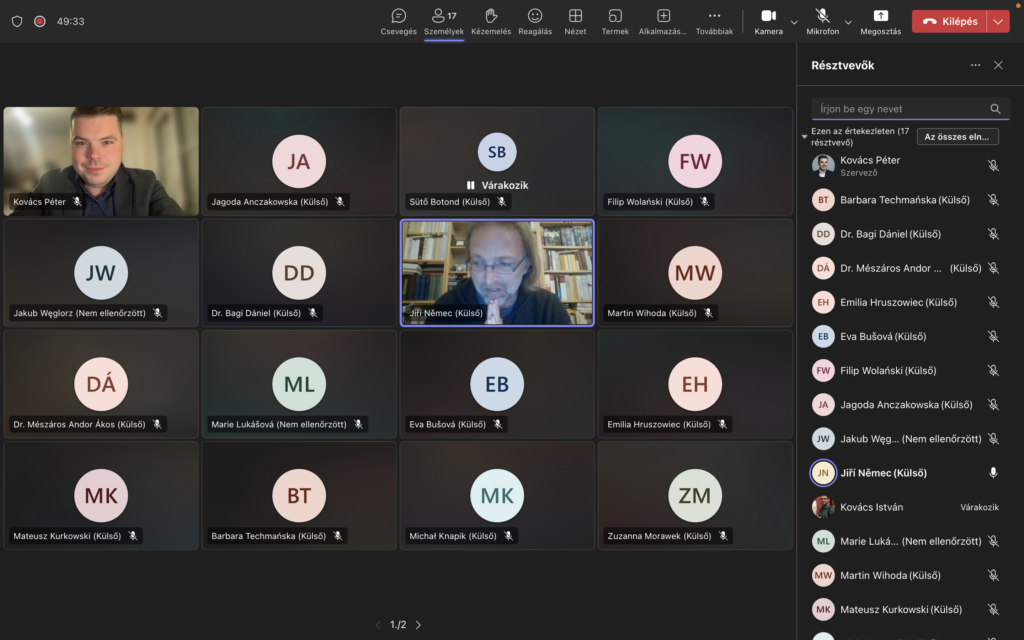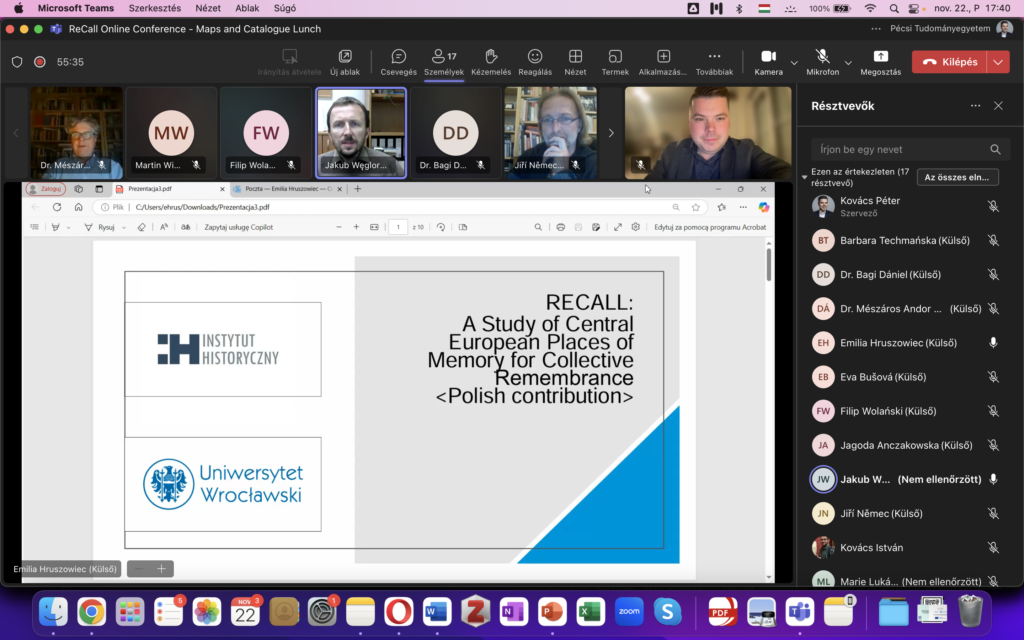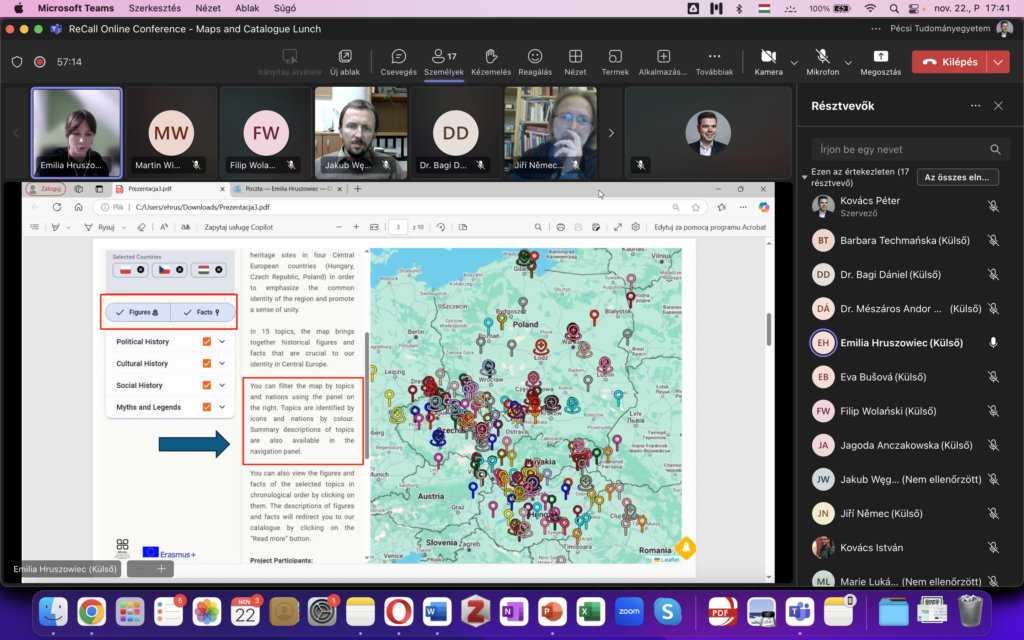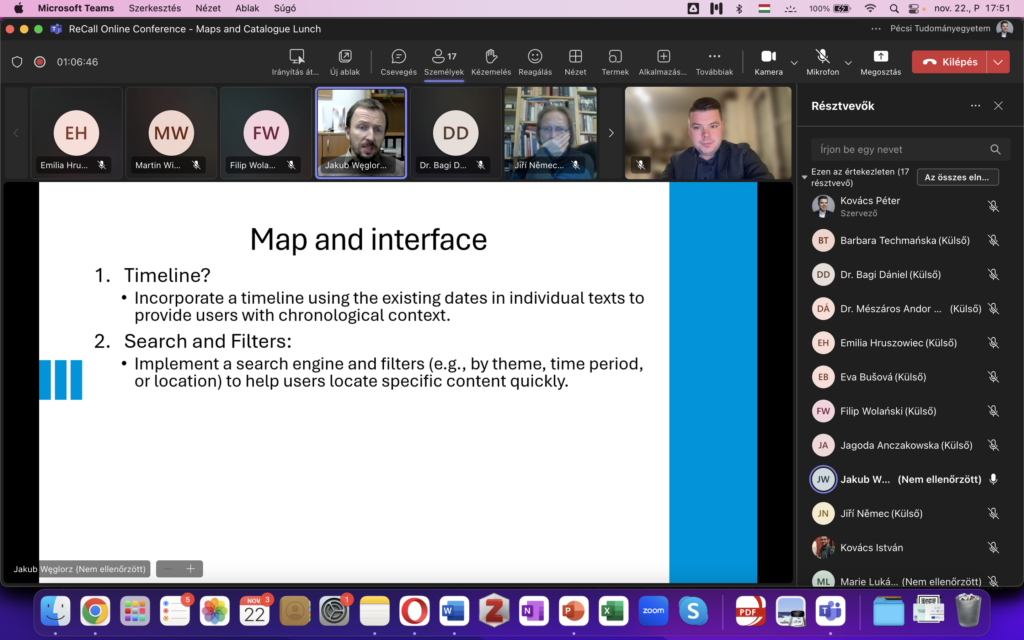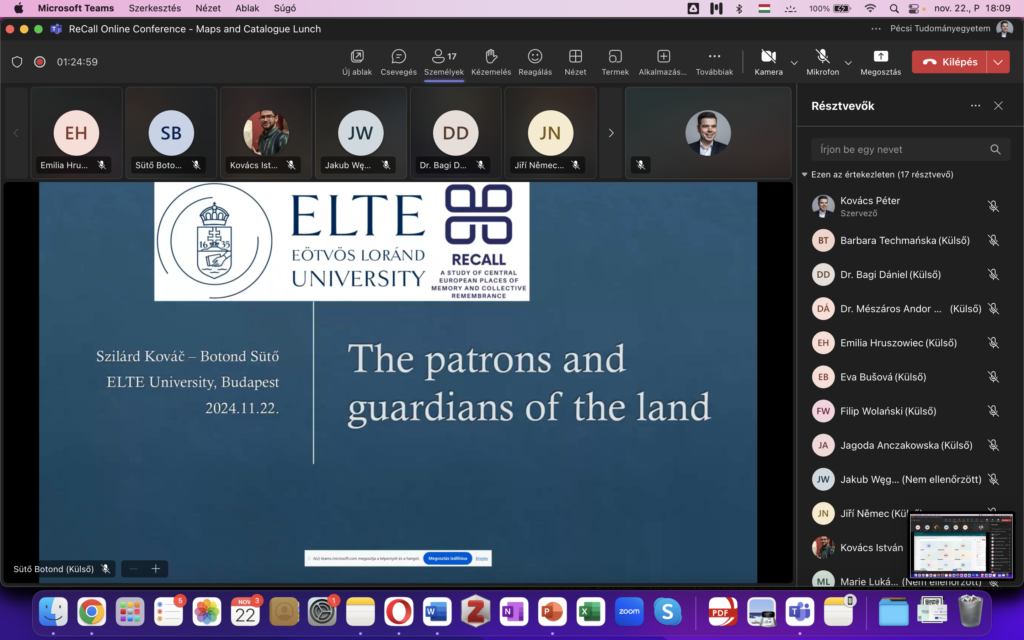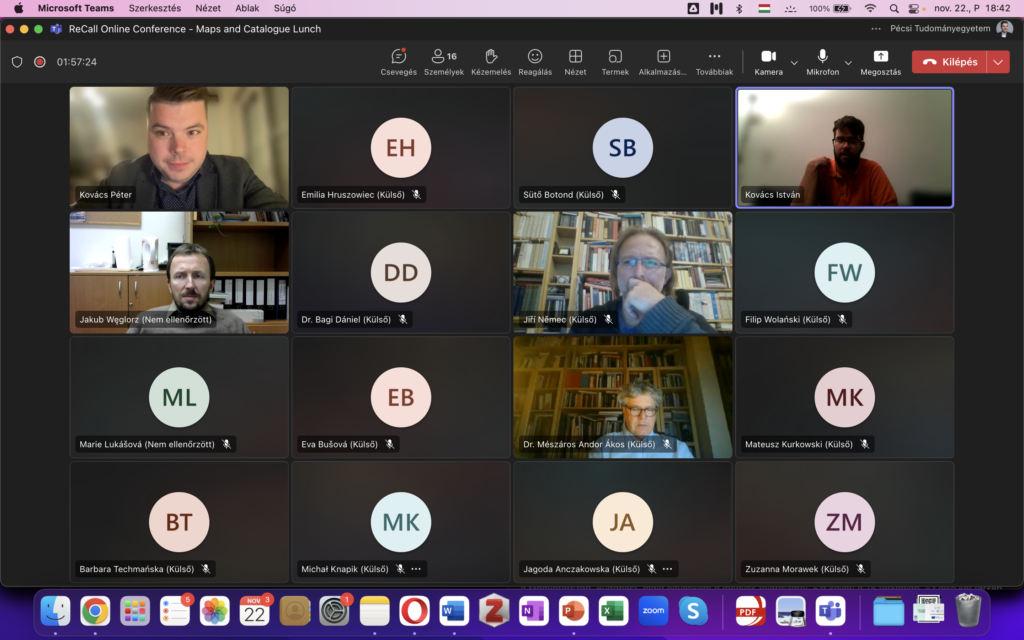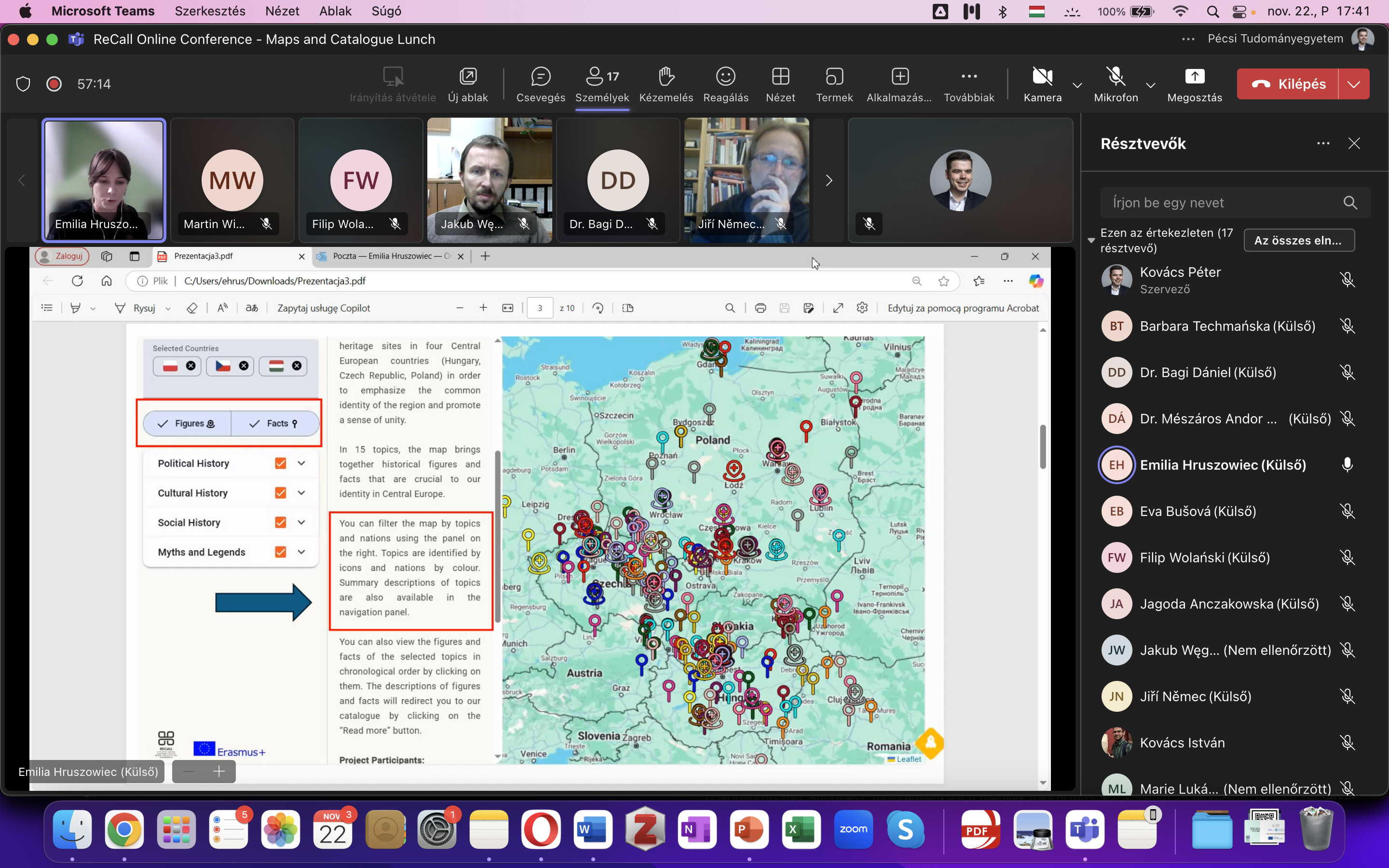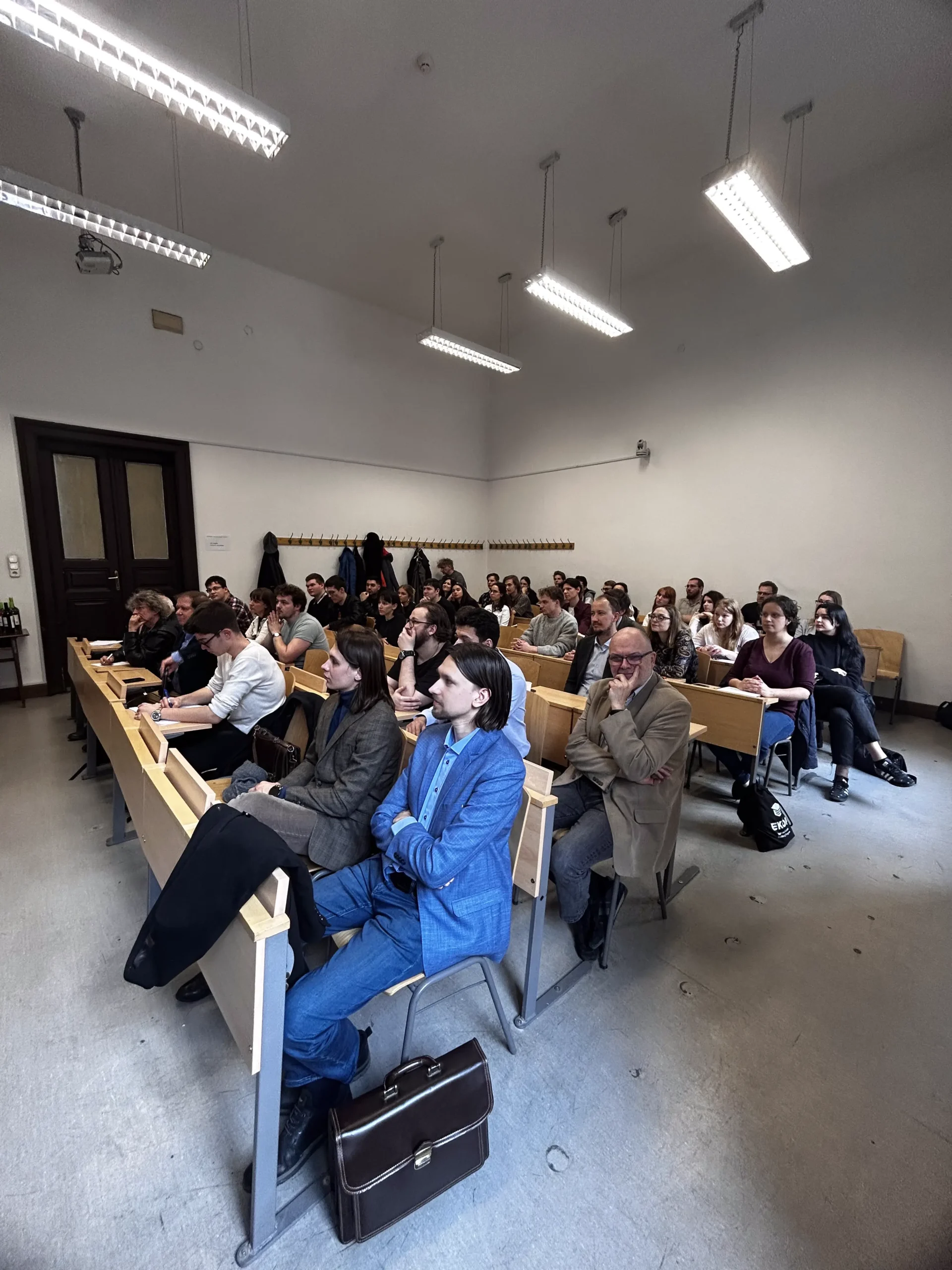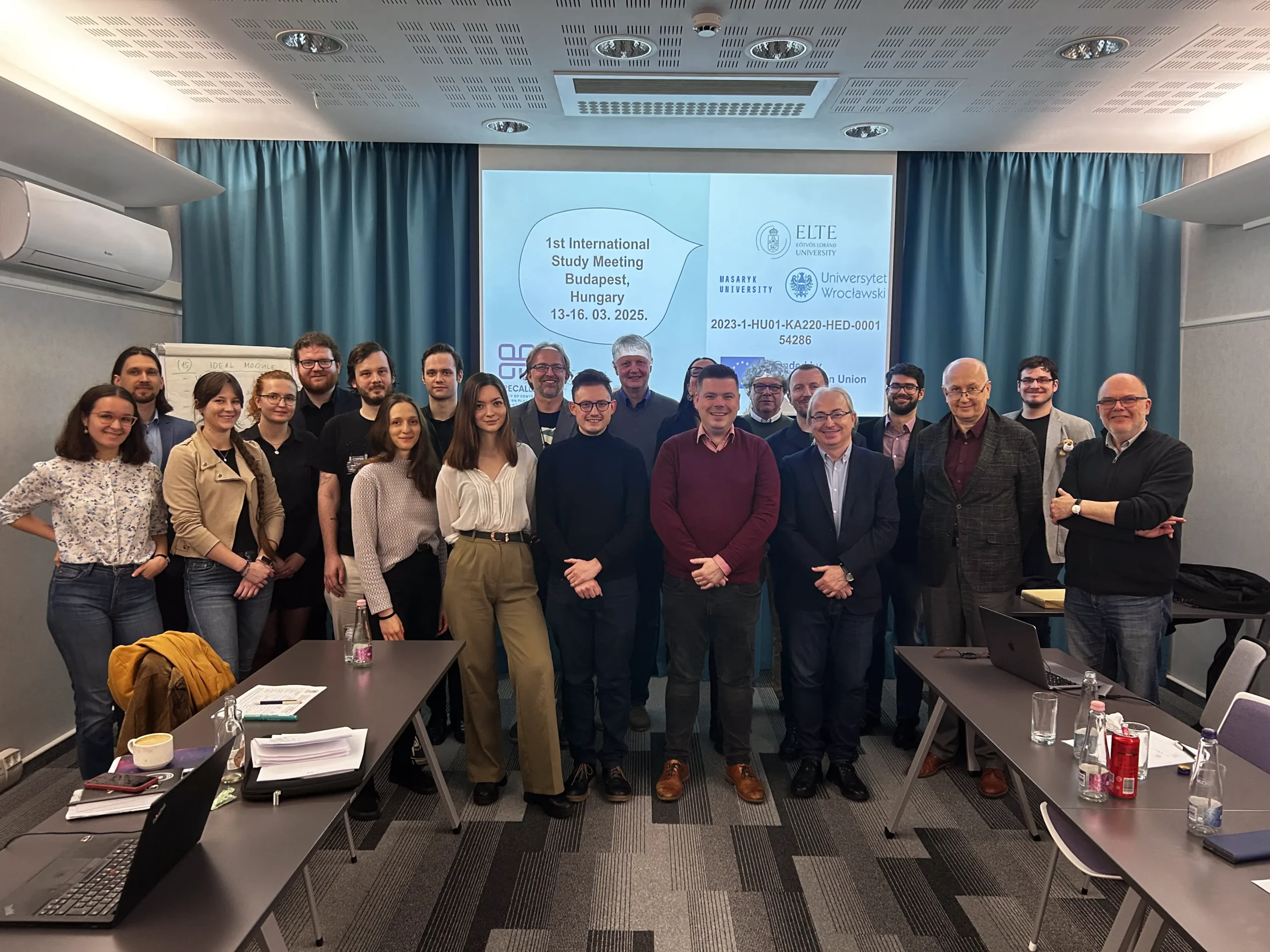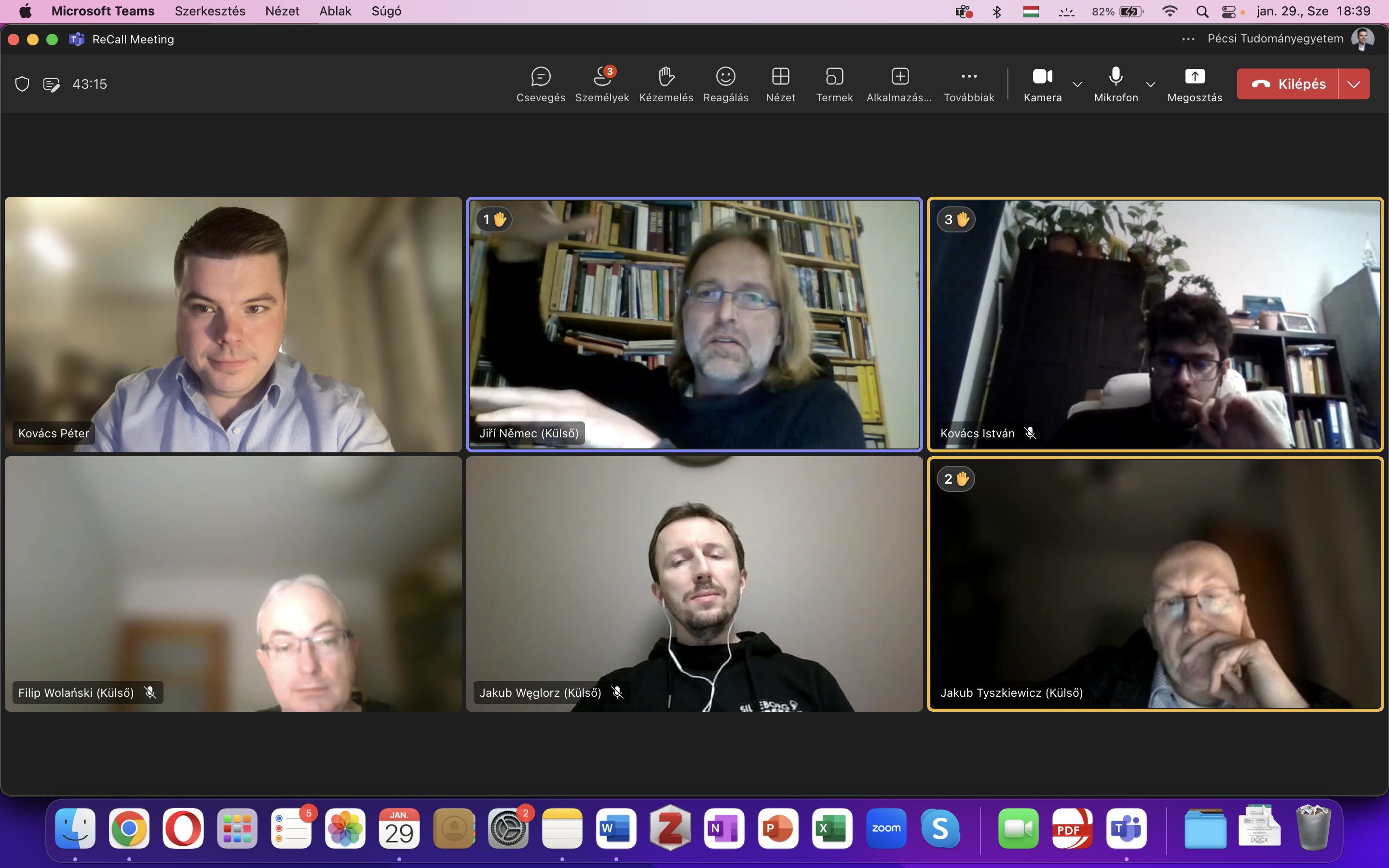The Recall Project team is thrilled to announce the successful completion of our first dissemination conference, marking a significant milestone in our shared journey toward preserving and exploring European cultural memory. The event highlighted the unveiling of our interactive map, online catalog, and project website, which will serve as key tools for research, education, and cross-cultural collaboration.
We extend our heartfelt thanks to all participants for their active engagement and valuable contributions during the conference. Special appreciation goes to Botond Sütő, Szilárd Kovács, Dr. Jiří Němec, Emilia Hruszowiec, and Dr. Jakub Węglorz for their insightful presentations. Each country’s unique perspective enriched our discussions and ensured a comprehensive approach to our shared objectives.
The event included a well-rounded program with contributions from team members and country representatives. Here’s a recap of the agenda:
- Welcome Speech and Agenda Overview – Delivered by Prof. Dr. Daniel Bagi, setting the tone for a productive meeting.
- Project Overview – Presented by Péter Kovács, providing an update on the project’s progress and goals.
- Website Presentation – A joint session by Prof. Dr. Dániel Bagi and Péter Kovács, showcasing the project’s new online platform and its key features.
- Hungarian Perspective on ‘The Patrons and Guardians of the Land’ – In this session, Szilárd Kovács and Botond Sütő shared a pre-recorded presentation that delves into Hungary’s national heritage, emphasizing the role of patrons and guardians in shaping the country’s history. The presentation also demonstrated how the earlier version of the project map displays relevant historical data. After the video, Botond joined live to answer questions from the audience.
- Czech Perspective –Dr. Jiří Němec presented a general overview of the Czech perspective on the project, discussing its implementation and key trends relevant to the collaborative goals. The ten-minute presentation provided valuable insights into the Czech contributions to the project.
- Polish Perspective – Website Usability Feedback by Emilia Hruszowiec – Emilia shared feedback from students, focusing on the website’s design, usability, and their initial impressionss and General Remarks on Website Functionality by Jakub Węglorz
Jakub provided an analysis of the website’s search tools, overarching structure, and concept for presenting historical topics. Both speakers offered valuable recommendations to enhance the platform’s effectiveness. - Next Project Phase: Course Development – Péter Kovács outlined the roadmap for the next phase, focusing on course development, script preparation, and e-learning material creation.
- Other Matters – The session concluded with an open discussion on additional topics, feedback, and next steps.
Website and Catalog Enhancements
Several creative ideas were proposed to make the website more engaging and user-friendly. Suggestions included a “Photo of the Month” feature on the homepage and an “I feel lucky” button to present users with random facts. Technical improvements were also highlighted, such as mobile optimization to improve performance and reduce load times, alongside SEO upgrades to resolve indexing issues for better visibility. Catalog-related recommendations focused on enhancing accessibility, such as providing clearer image credits and incorporating short hints or expandable comments to explain functionalities. Structuring content hierarchically within categories (Topics > Figures > Facts) was suggested to improve navigation. A review of color-coding in the Topics section was also requested to ensure consistency with the defined themes (cultural, political, and social history).
Map Adjustments and Features
The map’s usability emerged as a key area for refinement. Attendees emphasized the need for clearer instructions on how to use the map, better pin scaling to enhance readability, and a reorganization of the initial view to display only symbolic locations for the main topics. Suggestions included incorporating a timeline to provide chronological context and implementing more precise filters and search tools. The proposal to change the base map style to a topographic or thematic version was also discussed. Participants suggested associating each of the 15 main topics with a symbolic location, such as Prague for „The Story of the Beginning” or Auschwitz for „The Holocaust,” and assigning unique visual identifiers to these topics.
Course Development and Other Recommendations
For the online course, a detailed roadmap was requested, including deadlines for script development, text finalization, and filming schedules. Suggestions included forming a permanent team of student creators who also participate in the course and considering a final multiple-choice test to assess outcomes. Clear guidelines on dividing responsibilities for filming (joint vs. individual teams) were also highlighted. Ensuring the quality and accuracy of visual materials, particularly for the Czech content, was emphasized, along with revising image attachments and descriptions for consistency and correctness.
